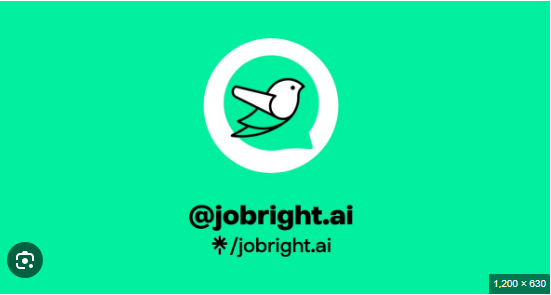As technology continues to revolutionize communication, transcription, and documentation, platforms like Otter.ai have become increasingly popular in a wide array of industries, including healthcare. Otter.ai is a transcription service that uses artificial intelligence to convert speech to text in real-time, making it a convenient tool for professionals who need to document meetings, lectures, interviews, or patient interactions.
For healthcare providers and organizations, the question arises: Is Otter.ai HIPAA compliant? In other words, can this service be safely used to handle Protected Health Information (PHI) without violating the rules set by the Health Insurance Portability and Accountability Act (HIPAA)?
This article provides a detailed analysis of HIPAA compliance as it pertains to Otter.ai, exploring what HIPAA requires, Otter.ai’s capabilities and policies, and whether or not it can be securely integrated into a healthcare workflow.
Understanding HIPAA Compliance
What Is HIPAA?
The Health Insurance Portability and Accountability Act (HIPAA), enacted in 1996, is a U.S. law designed to protect sensitive patient data. HIPAA mandates that healthcare providers is otter.ai hippa compliant health plans, and healthcare clearinghouses (known as “covered entities”), as well as their business associates, implement measures to ensure the privacy and security of health information.
Key HIPAA Requirements
For a platform or service to be HIPAA compliant, it must adhere to several critical requirements:
- Data Encryption – Protecting PHI both in transit and at rest using secure encryption standards.
- Access Controls – Implementing strong authentication and user access protocols.
- Audit Controls – Tracking user access and activity related to PHI.
- Business Associate Agreement (BAA) – If a third-party service provider handles PHI on behalf of a covered entity, a signed BAA is required by law.
- Employee Training and Policies – Ensuring the service provider’s staff is trained in handling PHI responsibly.
- Secure Data Storage and Deletion – Providing mechanisms to safely store, archive, and delete PHI.
Failure to comply with HIPAA can lead to hefty fines and serious legal repercussions for both healthcare organizations and their vendors.
What Is Otter.ai?
Otter.ai is a speech-to-text platform that uses machine learning and natural language processing (NLP) to generate real-time transcriptions. It’s widely used in sectors like education, journalism, business, and increasingly, healthcare—for purposes such as medical dictation, telehealth notes, and meeting documentation.
Features of Otter.ai
- Live transcription and captioning
- Real-time collaboration and note-taking
- Cloud-based storage
- Multi-device syncing
- Speaker identification
- Exporting in various formats (TXT, DOCX, SRT)
These features can offer tremendous productivity benefits, especially in fast-paced clinical settings where time and documentation accuracy are critical.
Is Otter.ai HIPAA Compliant?
The short answer is: No, Otter.ai is not currently HIPAA compliant.
Here’s a breakdown of why:
1. No Business Associate Agreement (BAA)
Otter.ai does not sign BAAs, which is a mandatory requirement for HIPAA compliance if the service is used to handle PHI. Without a BAA, a covered entity cannot lawfully use Otter.ai to process, store, or transcribe any information that includes PHI.
This fact alone disqualifies Otter.ai from being used in HIPAA-regulated environments where PHI is involved.
2. Public Statements and Policy
Otter.ai’s terms of service and privacy policy do not claim HIPAA compliance, nor do they indicate that the platform is suitable for handling PHI. In fact, Otter.ai has explicitly stated in customer communications and help documents that it is not intended for use with confidential health information.
This transparency is commendable, but it also serves as a clear red flag for healthcare organizations considering its use.
3. Data Encryption and Security
Otter.ai does use secure methods to transmit and store data, including encryption protocols, but these are not sufficient for HIPAA compliance unless used within the framework of a BAA and comprehensive privacy policies tailored for healthcare.
While data security is a part of HIPAA compliance, security alone is not enough. Legal agreements and operational safeguards are equally important.
Potential Risks of Using Otter.ai in Healthcare Settings
Using a non-HIPAA-compliant service like Otter.ai to handle PHI exposes healthcare providers to several significant risks:
- Regulatory Violations: Transmitting or storing PHI on a non-compliant platform can result in HIPAA violations.
- Data Breaches: If PHI is leaked or accessed by unauthorized users, the provider could be liable for the breach.
- Legal and Financial Penalties: HIPAA violations can lead to fines ranging from $100 to $50,000 per violation, up to a maximum of $1.5 million annually.
- Reputational Damage: Breaches of patient trust can cause long-lasting damage to a healthcare organization’s reputation.
When Can Otter.ai Be Used in Healthcare?
Although Otter.ai cannot be used for transcribing PHI or other HIPAA-regulated content, it may still have legitimate uses in healthcare settings, provided PHI is not involved.
Acceptable Use Cases Might Include:
- Transcribing internal meetings that do not mention patients or PHI
- Capturing notes from continuing medical education (CME) sessions
- Documenting non-clinical administrative discussions
- Supporting research interviews where no identifying health data is collected
In these cases, Otter.ai can still offer value without triggering HIPAA compliance issues—as long as users are careful to avoid discussing or uploading any sensitive patient information.
Alternatives to Otter.ai That Are HIPAA Compliant
For healthcare organizations that require transcription and speech-to-text solutions compliant with HIPAA, several alternatives are available:
1. Scribie (with HIPAA Add-On)
Offers transcription with HIPAA compliance as an optional service. A BAA is available upon request.
2. Rev for Enterprise
Rev offers HIPAA-compliant transcription services through its Enterprise plan, including a signed BAA and secure handling of PHI.
3. Nuance Dragon Medical One
Specifically designed for the healthcare industry, Dragon Medical One provides secure, HIPAA-compliant speech recognition for clinical documentation.
4. DeepScribe
An AI-powered medical scribe that integrates directly with electronic health record (EHR) systems and is fully HIPAA compliant.
When evaluating any alternative, make sure to verify the provider’s willingness to sign a BAA, review their security policies, and ensure their platform meets HIPAA’s technical and administrative requirements.
Final Thoughts
Otter.ai is a powerful and accessible transcription tool that has earned a strong reputation across various industries. However, when it comes to HIPAA compliance, it falls short. Otter.ai does not offer a BAA, does not market itself as HIPAA compliant, and should not be used in any context involving PHI.
Healthcare providers looking for transcription tools must be diligent in ensuring their software solutions meet HIPAA requirements, both legally and technically is otter.ai hippa compliant The stakes are simply too high to cut corners when it comes to patient privacy and data security.
If you’re in the healthcare field and need transcription support, explore options built specifically with HIPAA compliance in mind—and always consult with your compliance officer or legal team before adopting any new technology that could handle sensitive health information








Leave feedback about this